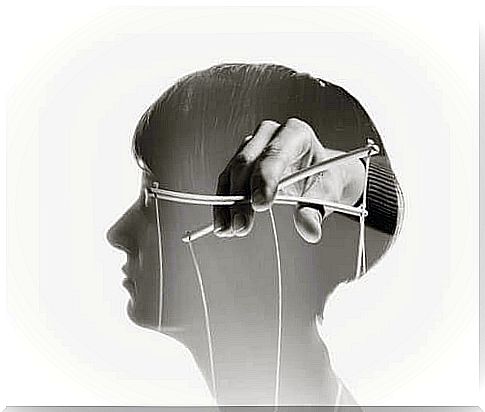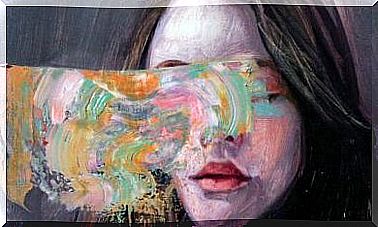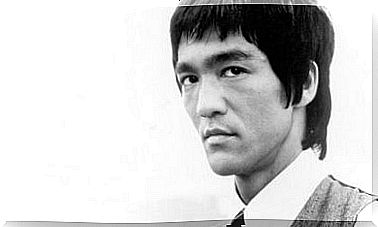The Dark Three: Narcissism, Machiavellianism And Psychopathy

People who are unable to feel connected to others or who can very consciously disconnect their emotions fall under something in personality psychology we call “The Dark Triad” or the “Dark Three.” It is the dark side of human social nature and it seems to come in three dark types: the narcissist, the Machiavellian and the psychopath.
In extreme cases, people with traits from the dark three become criminals or lose themselves in mental illness. But there are also people among us who have not been diagnosed with such a personality type, but who nevertheless have these qualities.
People with these characteristics and behaviors are said to have dark personalities. Why? Because of their callous, selfish and malevolent tendencies in their relationships with others. Delroy L. Paulhus and Kevin M. Williams, psychologists at the University of British Columbia, called these traits “the dark three” because they are the most negative aspects of human relationships. Let’s take a look at them.

The Dark Three: The Narcissist
“I do what I want” or “Other people are there to love me” are examples of narcissistic thoughts. They are selfish people, with an egocentric sense of right and wrong and a positive self-image that turns out to be unrealistic when you look at how the people around them see them.
Narcissists are ‘snake charmers’. In the beginning people love them ; they seem pleasant and attractive. But as time goes by, they can become very dangerous. People around them may not be able to see their true intentions, which is to gain admiration and power.
They often find routines boring, so they look for challenges. Most narcissists are leaders or have professions that involve a lot of stress. According to psychoanalyst Michael Maccoby, narcissism is an increasingly common disorder in the upper echelons of business. It is directly related to competition, salary and glamour.
The Negative Aspect of Narcissism
One of their strengths is their special ability to convince others. They use it to surround themselves with a large following. They easily convince others to do exactly what they want them to do.
In short, they get what they want. And because they lack empathy, this is not difficult for them at all. They are not picky at all when it comes to the resources and strategies they should use to achieve their goals.
Narcissistic people have no interest in and have absolutely no regard for others, even if they appear to be. They have no regrets and pity and the needs and feelings of the people around them generally leave them cold.
However, their self-esteem is their Achilles heel. Narcissists often have very low self-esteem and are often somewhat vulnerable and insecure. Therefore, they try to surround themselves with people they consider inferior so that they can dominate and feel powerful.

The Dark Three: The Machiavellianist
For “Machiavellians” the end justifies the means, regardless of the consequences. Usually they are very calculating and cold people and have no real emotional ties to others.
While they typically share similarities with narcissists, such as selfishness and using others, there is something that sets them apart: they see themselves and their relationships in a realistic way.
Machiavellians try not to impress anyone. Instead, they show exactly who they are and prefer to see things clearly because that way they can manipulate others better. In fact, they target the emotions of the people they want to manipulate to get what they want. By anticipating your feelings, they can choose the right strategy to manipulate you.
According to psychologist Daniel Goleman, people with Machiavellian characteristics have less empathy. Their coldness seems to be due to the inability to process their own emotions and the emotions of others.
In fact, emotions make them so uncomfortable that when they feel fear, they usually don’t know how to distinguish it from sadness or fatigue. However, what they are usually very good at is understanding what others are thinking. But as Goleman says, even if their minds know what to do, their hearts still have no idea.

The Dark Three: The Psychopath
Psychopaths view others as objects that they can use and discard whenever they feel like it. But unlike the other personalities within the dark threesome, they almost never experience fear. It’s like they have no idea what it’s like to be afraid.
This allows them to remain calm even in emotionally intense, dangerous and frightening situations. They don’t care too much about the consequences of their actions. Of the three personality types, the psychopath has the greatest chance of ending up in prison.
In psychopaths, the function of conscience lags behind in development or does not come about at all. They are impervious to suffering because they cannot detect it. Feelings of regret and shame are also foreign to them.
However, psychopaths know how to play others very well to get what they want. It turns out that they are better at faking emotions than healthy people. They have a lot of persuasiveness. Although they rank highly in social cognition, they understand relationships and the behavior of others only from a logical or intellectual perspective.

How to avoid falling into the trap
If the dark three exist in your relationship, then there is likely abuse and psychological violence. These people are poisonous, using power and manipulation to entrap their victims. The key to not falling for it is healthy emotional independence. Learn to set clear boundaries in your relationships and don’t let anyone cross them. Protecting yourself should come first.









